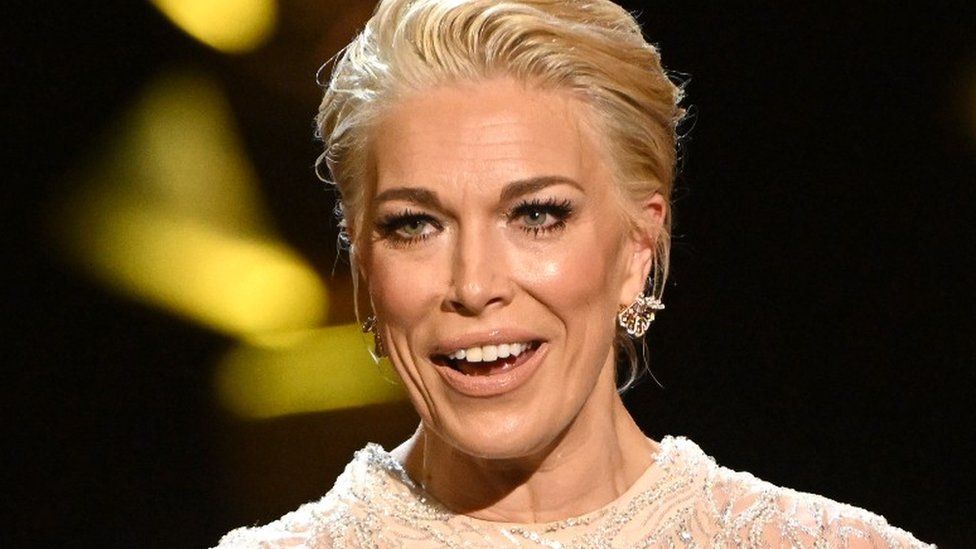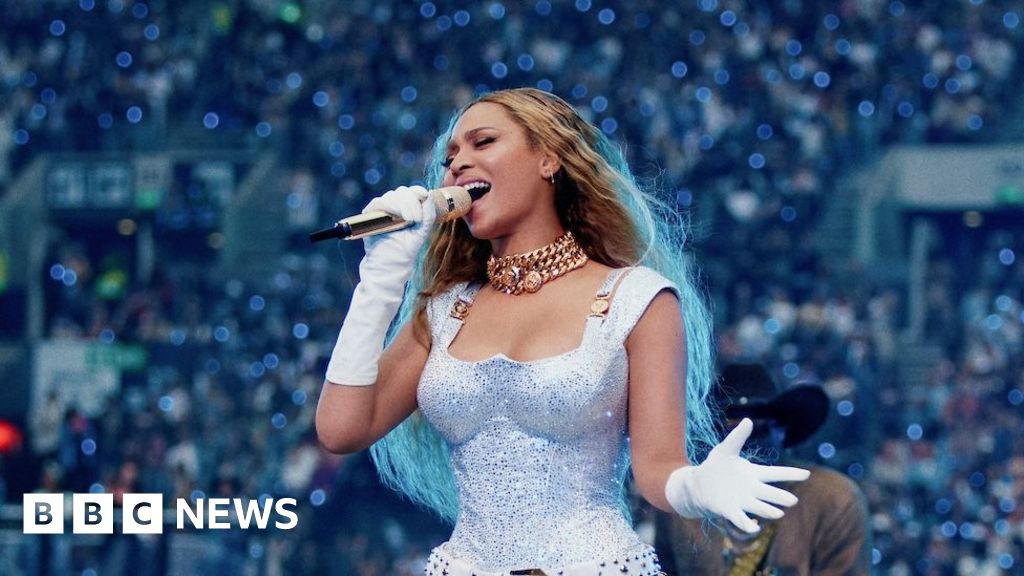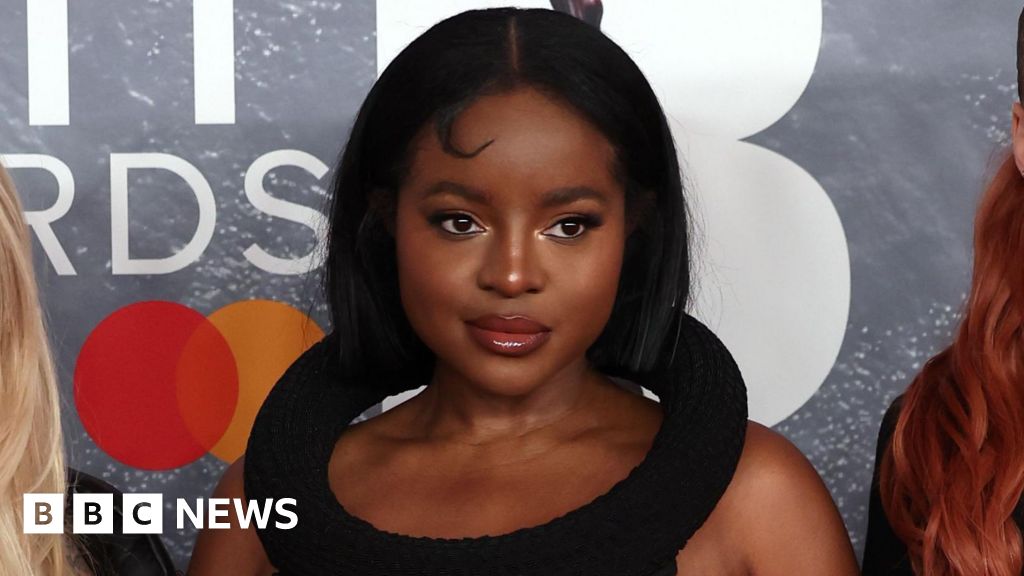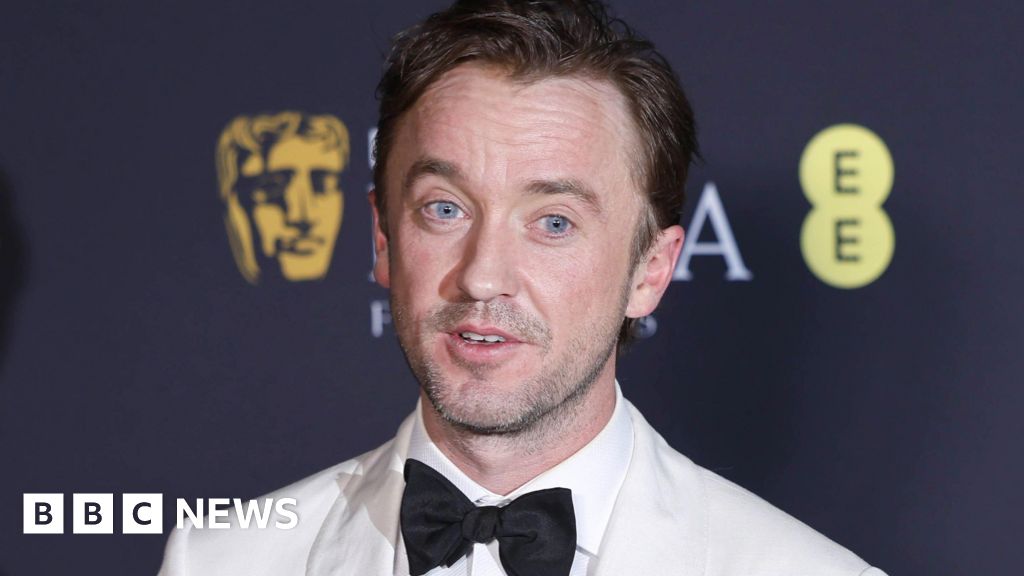ARTICLE AD BOX
 Image source, Getty Images
Image source, Getty Images
Hannah Waddingham says she's been a Eurovision fan for years
By Daniel Rosney
Eurovision reporter
Ted Lasso star Hannah Waddingham will host this year's Eurovision Song Contest, alongside Alesha Dixon and Ukrainian singer Julia Sanina.
The presenting trio will front the two semi-finals on 9 and 11 May, with Graham Norton joining them for the grand final on Saturday, 13 May.
More than 160 million are expected to watch the competition globally.
The UK is hosting on behalf of 2022 winner Ukraine, which cannot stage the event due to Russia's ongoing invasion.
Emmy-award winning actress Waddingham said it was "a great privilege" to be involved.
"It's one of the world's greatest music festivals," the Game of Thrones and Sex Education actress added.
"But this year, perhaps more than ever, it is such a great honour to be standing shoulder to shoulder with Ukraine, a country which has carried itself with such strength and unity."
This year's competition is being held in Liverpool on behalf of Ukraine who won last year's event
Britain's Got Talent judge and singer Alesha Dixon said: "There is just something about the buzz and anticipation of a live show that can't be rivalled. Eurovision delivers that excitement, creativity and talent, but on a vast, global scale".
She joins Waddingham, an accomplished West End and Broadway actress, and Julia Sanina, frontwoman of Ukrainian alternative band The HARDKISS, who will appear on tonight's The One Show.
"I'm so excited to showcase Ukrainian culture and creativity, and to help put on a show to make my country proud," Sanina said. "I can't wait to get to Liverpool and meet the fans and the rest of the Eurovision family."
It is an all-female line-up for the knock out stages.
Longstanding Eurovision commentator Graham Norton will join the three hosts for the grand final, describing it as "the greatest show on earth".
"Every year that I'm involved it's a huge honour," he said. "This year is even more special and I personally feel a big responsibility to make our Ukrainian colleagues proud."
He will also share commentating duties on the final with actress and comedian Mel Giedroyc, who has previously been involved in the BBC's semi-final coverage.
The rundown on the 2023 contest in 50 seconds
The BBC, which agreed to step in for Ukrainian broadcaster UA:PBC, also confirmed BBC Radio 2 presenters Scott Mills and Rylan will be the semi-final commentators for the BBC.
Ukrainian broadcaster Timur Miroshnychenko, who hosted Eurovision in Ukraine in 2017, will also be involved in the live shows, as well as hosting the opening ceremony, which will be streamed online with BBC One's Morning Live presenter Sam Quek.
Timur Miroshnychenko, broadcasting from bunker, jumps for joy at Ukraine win
Like all major international events, there's a significant cost putting on Eurovision and the bill is shared.
Local government in Liverpool has committed to £4m for attractions around May's contest. It will go towards initiatives like a fan village with big screens and stages for live music, as well as other city-wide events.
The UK government also says it will contribute financially - although it hasn't said by how much - claiming a lot of money will be made back by hosting the event.
Officials in Turin spent around £10m hosting Eurovision in 2022 but they got that figure back "seven times", mainly from the hospitality industry.
The bulk of the cost will fall to the BBC as host broadcaster. It's estimated Eurovision will cost the corporation between £8m and £17m - a significant jump from what it normally spends participating.
Image source, EBU / Sarah Louise Bennett
Image caption,Sam Ryder came second at this year's Eurovision Song Contest for the United Kingdom
Further information about tickets to Eurovision, with fans able to buy them for nine shows (including rehearsals) is expected in the coming weeks.
All 37 participating broadcasters have around a month left to confirm the song and artist they'll be sending to the song contest.
All the build-up, insights and analysis is explored each week on a new BBC podcast called Eurovisioncast.
Eurovisioncast is available on BBC Sounds, or search wherever you get your podcasts from.

 2 years ago
40
2 years ago
40








 English (US) ·
English (US) ·